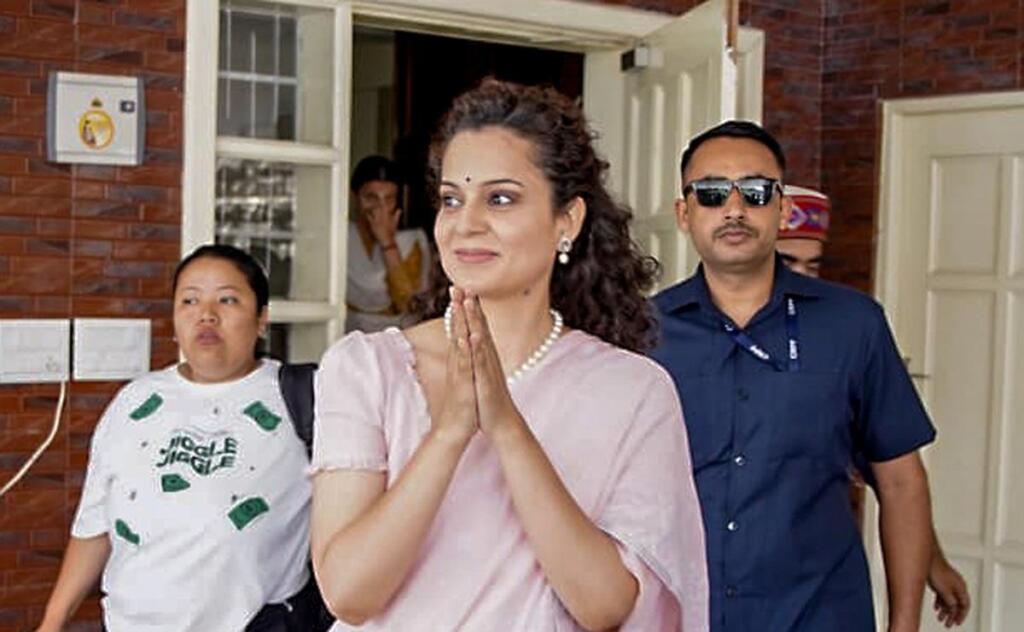On one hand, where Kangana Ranaut , known by her name Bollywood’s Queen, received no congratulations from Bollywood’s veterans on her victory, on the other hand, as soon as South actors Pawan Kalyan and Suresh Gopi won, congratulatory messages poured in from their industry. This one thing has shown a big difference between the South industry and the Bollywood industry in the entire country. It’s not that relationships are bad for everyone in Bollywood, but one can also raise the question: Is Bollywood still toxic for outsiders, and if not, then why didn’t Kangana Ranaut receive congratulations from the fellow stars of the industrty?
Celebratory Messages in Kerala
Social media platforms were inundated with congratulatory messages when actor-politician Suresh Gopi secured a historic victory for the BJP in Kerala’s Thrissur Lok Sabha constituency. Prominent personalities from the Malayalam film industry, such as Mammootty and Mohanlal, joined in extending their felicitations to Gopi for his remarkable achievement. This overwhelming display of support underscored the significance of Gopi’s win and demonstrated the unity and camaraderie within the industry.
Victories in AP Elections
Similarly, Pawan Kalyan’s Janasena Party (JSP) clinched victory in all 21 contested seats during the 2024 AP elections, catapulting the actor into the position of MLA for the Pithapuram constituency. This resounding success sparked an overflow of congratulatory messages from fellow celebrities and supporters across diverse social media channels, underscoring the widespread admiration and support Kalyan commands both within and outside of the political arena.
Bollywood’s Response
A stark contrast becomes evident when analyzing the reaction from the Bollywood industry. Kangana Ranaut’s triumph in the Mandi constituency, marking her debut in politics, should have been a moment celebrated by her peers. However, the absence of widespread congratulatory messages from significant Bollywood figures, with only Anupam Kher extending acknowledgment, highlights a significant disparity. This absence underscores an apparent reluctance within the industry to acknowledge achievements among its own members. Despite Ranaut’s noteworthy victory, the lack of support from Bollywood luminaries accentuates a concerning aspect of the industry’s culture regarding recognition and camaraderie.
Bias within Bollywood
This disparity not only highlights a bias within the Bollywood fraternity but also underscores a significant cultural difference between the Bollywood and South Indian film industries. While the South Indian film industry exhibits a commendable and supportive camaraderie among its stars, evidenced by the enthusiastic support shown towards successful peers like Suresh Gopi and Pawan Kalyan, Bollywood’s culture appears marred by ego and an unwillingness to celebrate the accomplishments of others.
Bollywood
Bollywood’s negative attitude towards rising outsiders who raise their voices stems from a deeply entrenched culture of hierarchy and nepotism. As newcomers challenge the status quo, they often face resistance from established figures reluctant to share the spotlight. The industry’s insular nature tends to favor those with familial connections or industry ties, leading to marginalization and disregard for outsiders’ perspectives. Furthermore, speaking out against injustices or advocating for change threatens the existing power dynamics, prompting backlash and ostracization. This toxic environment perpetuates a cycle of exclusion and stifles diversity, hindering the industry’s potential for growth and innovation.
Conclusion
In conclusion, the divergent reactions to political triumphs in the film fraternity illuminate profound cultural distinctions between Bollywood and its southern equivalents. The overtly supportive and affirmative demeanor exhibited by South Indian celebrities towards their contemporaries presents a striking juxtaposition to Bollywood’s apparent apathy and ego-centric ethos. These disparities not only influence the industry’s operational dynamics but also serve as mirrors reflecting broader societal viewpoints on achievement and cooperation within the entertainment sphere. Thus, the contrasting responses underscore the imperative for introspection within Bollywood and signal a potential shift towards fostering a more inclusive and supportive environment for all stakeholders in the industry.
ALSO READ: Why did BJP lose in Ayodhya despite the Ram Janmabhoomi temple?
